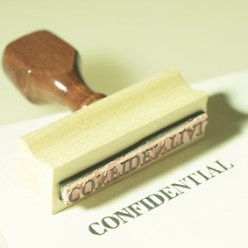Some documents and records that churches maintain are private. Examples of confidential information include:
- Members’ contributions records.
- Counseling notes taken by a pastor or church counselor.
- References you obtain when screening youth workers.
- Minutes of board meetings at which sensitive issues are discussed.
A church faces possible legal liability if it permits disclosure of any of these kinds of confidential records. As a result, it is important for church board members to take steps to insure that confidential information is not leaked or inadvertently disclosed. There are a number of ways this can be done, and to a great degree it is simply a matter of recognizing the problem and using common sense.
Precautions for keeping confidential information:
- Keep confidential information in a locked, fireproof file, and give the keys to a designated person such as the treasurer or senior pastor, depending on the nature of the records involved.
- Confidential information is often stored as files on church computers, and steps must be taken to restrict access to this data by unauthorized persons.
- Confidential information should not be disclosed to persons without a legitimate need to know. For example, if the board dismisses a staff member due to a confession of misconduct, the pastor and board must recognize that public disclosure of this information can result in legal liability.
- The church board should consider adopting a covenant of confidentiality each year. This means that board members sign a covenant agreeing not to disclose any confidential information shared during board meetings without the unanimous consent of the board. This kind of covenant serves a few important purposes. First, it helps to impress upon the board the highly confidential nature of some information, and second, it reduces the legal risk to the church in the event that a board member violates the covenant and leaks confidential information. Of course, it will not work unless everyone consents, so if one or more board members refuse to sign, they must be excused from any discussion of confidential information.
- Pastors often maintain counseling notes or other highly confidential records, and steps must be taken to insure the proper disposition of this information in the event of the sudden death or incapacity of the pastor.





